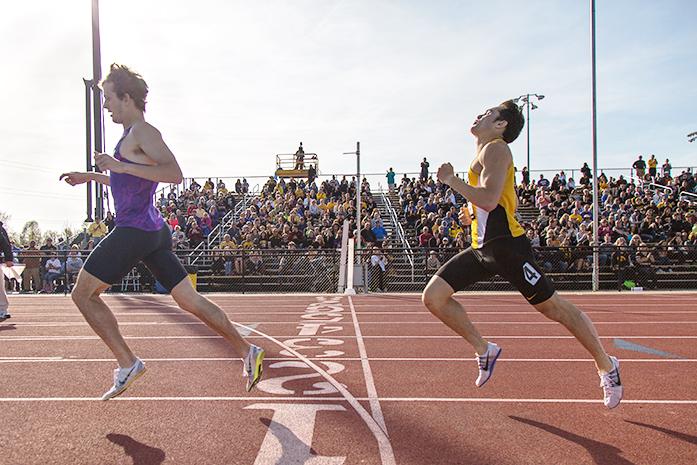After their top-25 ranking début, the Iowa men’s track team reinforced the notion that while the Hawkeyes are close, they haven’t quite reached an elite level.
There were positive moments at the Drake Relays, don’t be mistaken. Iowa took home the victory in the sprint medley and advanced several athletes to the finals.
One race in particular, Iowa’s 4×800 relay on April 29, performed identicallu to how the entire team has so far this season.
At one point in the race, the Hawkeyes were in second place. It was a battle, and it looked as if Iowa had a shot to close out and win the race.
But that was as close as the squad got to winning. It faltered toward the end and came in eighth.
Iowa did a decent job of advancing individual athletes to the finals — they just couldn’t get to the top.
“Sometimes, we just expect things to go our way, versus making sure we are competing and fighting to make sure that we set ourselves up for success,” said Iowa Director of Track and Field Joey Woody.
There were instances in which the Hawkeyes took themselves out of the race, not their outstanding competition.
Aaron Mallett, one of the top hurdlers in the country, made it to the finals in the 110-meter hurdles and placed third.
During his race, some hurdles tripped him up, which normally isn’t an issue for him.
“The race is usually who’s the cleanest and who’s the sharpest,” the junior said. “[Hitting hurdles] took me out of the race.”
Vinnie Saucer Jr., who was a key factor in Iowa’s lone victory in the sprint medley, also competed in the 100 meters. He headed into the finals with the second-fastest time on April 29, but just like Mallett, he ended up third.
When asked if given the opportunity, would he go back and change anything, Saucer did not hesitate.
“My start; I feel like I should just push a little bit harder with it,” he said.
Saucer and Mallett — two of the best athletes on the team — placing well is a good sign for the future. However, to be considered one of the nation’s top teams, victories in the finals need to happen.
Another factor the played a role in Iowa’s performance was a missing key component: James Harrington.
One of the fastest athletes on the team, the senior was nowhere to be found on the Blue Oval this past weekend.
On April 23 at the Musco Twilight, Harrington pulled up after one of his sprints. Despite his health progress all week, Woody believed Harrington would have gone all out and could potentially have aggravated his injury.
“We’re just being cautious after Musco,” Woody said. “He’s been looking great this week, but we just wanted to be smart with him.”
Iowa did not advance its 4×100 relay to the finals (a race Harrington is typically a part of) and also did not run the 4×200 relay. If Harrington had been healthy, the relays would have had a shot at season-best times and advancing past the preliminary round.
The athletes’ mechanics, injuries, and team focus all need to be consistent if a Big Ten title is the goal. Iowa aims for its next meet, the Big Ten outdoor championship, to be the meet in which everything clicks.



